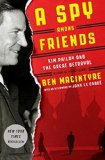Summary | Excerpt | Reviews | Beyond the book | Read-Alikes | Genres & Themes | Author Bio

Commander Ian Fleming, of the London war office of naval intelligence, emerges as a fully-fledged central character in Francine Mathew's riveting historical novel Too Bad to Die. Like his fictional creation, James Bond, Fleming cuts a dashing figure — tall, handsome, and elegantly draped in a bespoke uniform.
 The vividly imagined novel is set in the midst of World War II with most of the action taking place during the Cairo Conference, codename Sextant, when President Roosevelt and Special Envoy Averell Harriman, Prime Minister Winston Churchill and Generalissimo Chiang Kai-Shek met to discuss Allied war strategy against Japan. These real-life historical figures, along with a retinue that included staff, advisors, and family members, feature in Mathews' fictional reimagining of world events. The conference was held at the Cairo residence of the American Ambassador to Egypt, Alexander Kirk, with its remarkable view of the Pyramids at Giza.
The vividly imagined novel is set in the midst of World War II with most of the action taking place during the Cairo Conference, codename Sextant, when President Roosevelt and Special Envoy Averell Harriman, Prime Minister Winston Churchill and Generalissimo Chiang Kai-Shek met to discuss Allied war strategy against Japan. These real-life historical figures, along with a retinue that included staff, advisors, and family members, feature in Mathews' fictional reimagining of world events. The conference was held at the Cairo residence of the American Ambassador to Egypt, Alexander Kirk, with its remarkable view of the Pyramids at Giza.
The novel's premise is that the normally deskbound Fleming, present in Cairo as a member of the British delegation, becomes involved firsthand in a deadly game of espionage as a plot to assassinate all three world leaders in Tehran is revealed. At great risk to life and career, Fleming assumes a Bond-like persona in his determination to uncover the identity of a shadowy figure known as "The Fencer," and thwart assassination plans. While Too Bad to Die mostly adheres to historical facts to provide background, the real Commander Fleming was not present at either the Cairo conference, or the subsequent, Tehran conference.*
The most entertaining portions of Too Bad to Die are doubtless the engaging backstories filled with social intrigue and gossip surrounding the attending entourage, which Mathews relates in a literary but captivating tabloid style. The historical facts withstand scrutiny. For example, Pamela Digby Churchill, the daughter-in-law of the British premier, had accompanied her father-in-law, along with his capable daughter Sarah, to both conferences. She spices up the pages with talk of her affairs with broadcast journalist Edward Murrow and Averell Harriman (biographer Christopher Ogden referred to her as "courtesan of the century" in Life of the Party.) Elliott Roosevelt, reputed favorite son of Eleanor, already twice divorced by 1943, accompanied his dad as an aide and is depicted in the novel as part of the alcohol-fueled flirtations and intrigues that played out.
The first few chapters had me hooked, but overall, the book is uneven and delivers an unconvincing transition from light historical novel to thriller. Mathews' writing is superb and literary but I would qualify my recommendation with a caveat: the cheery gossipy and quasi-biographical overtones of the first three-quarters of the book turns dark towards the end. Nevertheless, overall, Too Bad to Die is an engaging spy thriller certain to please fans of James Bond and Ian Fleming as well as aficionados of WWII history.
Francine Mathews on the History Behind the Assassination Plot
*As for the assassination plot - Western history books do not generally acknowledge an assassination plot but Russian ones do. BookBrowse contacted the author (who holds degrees in history from Princeton and Stanford) to ask where fact ends and fiction begins, to which she replied:
"Ian Fleming served as assistant to the director of British Naval Intelligence at the time, and planned the Cairo conference. He was present in Cairo for the first part of the conference, but [developed] bronchitis. He did not travel on to Teheran as a result. This is the fictional part: I send him to Teheran to pursue an assassin under cover. The Nazi plot at the heart of the book is allegedly true. I say allegedly, because the truth is lost in the weeds of wartime intelligence. Stalin's agents insist they rounded up the bulk of Nazi paratroopers who were training in the mountains outside Teheran with a plot to kill Stalin, Churchill and Roosevelt at Hitler's orders. Years later Russia awarded their highest intelligence medal to the Armenian agent who foiled the plot. The British, however, insisted the Russians made the whole thing up to project themselves as heroes. This has more to do with tensions between those two particular allies during WWII than it does with anything else."
Also of interest "From Spy to Author."
Picture of Generalissimo Chiang Kai-Shek, President Roosevelt and Prime Minister Winston Churchill at the Cairo Conference from National Archives and Records Administration
![]() This review was originally published in The BookBrowse Review in May 2015, and has been updated for the
March 2016 edition.
Click here to go to this issue.
This review was originally published in The BookBrowse Review in May 2015, and has been updated for the
March 2016 edition.
Click here to go to this issue.

If you liked Too Bad to Die, try these:

by Esther Freud
Published 2015
Mr. Mac and Me is the story of an unlikely friendship, and a vivid portrait of one of the most brilliant and misunderstood artists of his generation.

by Ben Macintyre
Published 2015
Master storyteller Ben Macintyre's most ambitious work to date brings to life the twentieth century's greatest spy story.
Your guide toexceptional books
BookBrowse seeks out and recommends the best in contemporary fiction and nonfiction—books that not only engage and entertain but also deepen our understanding of ourselves and the world around us.